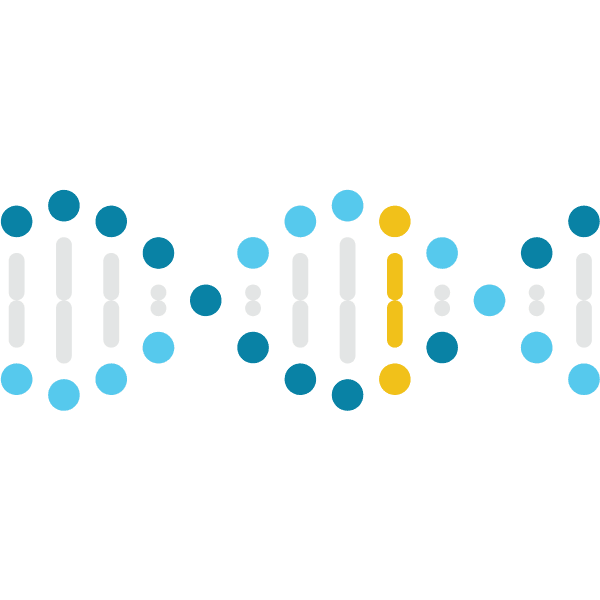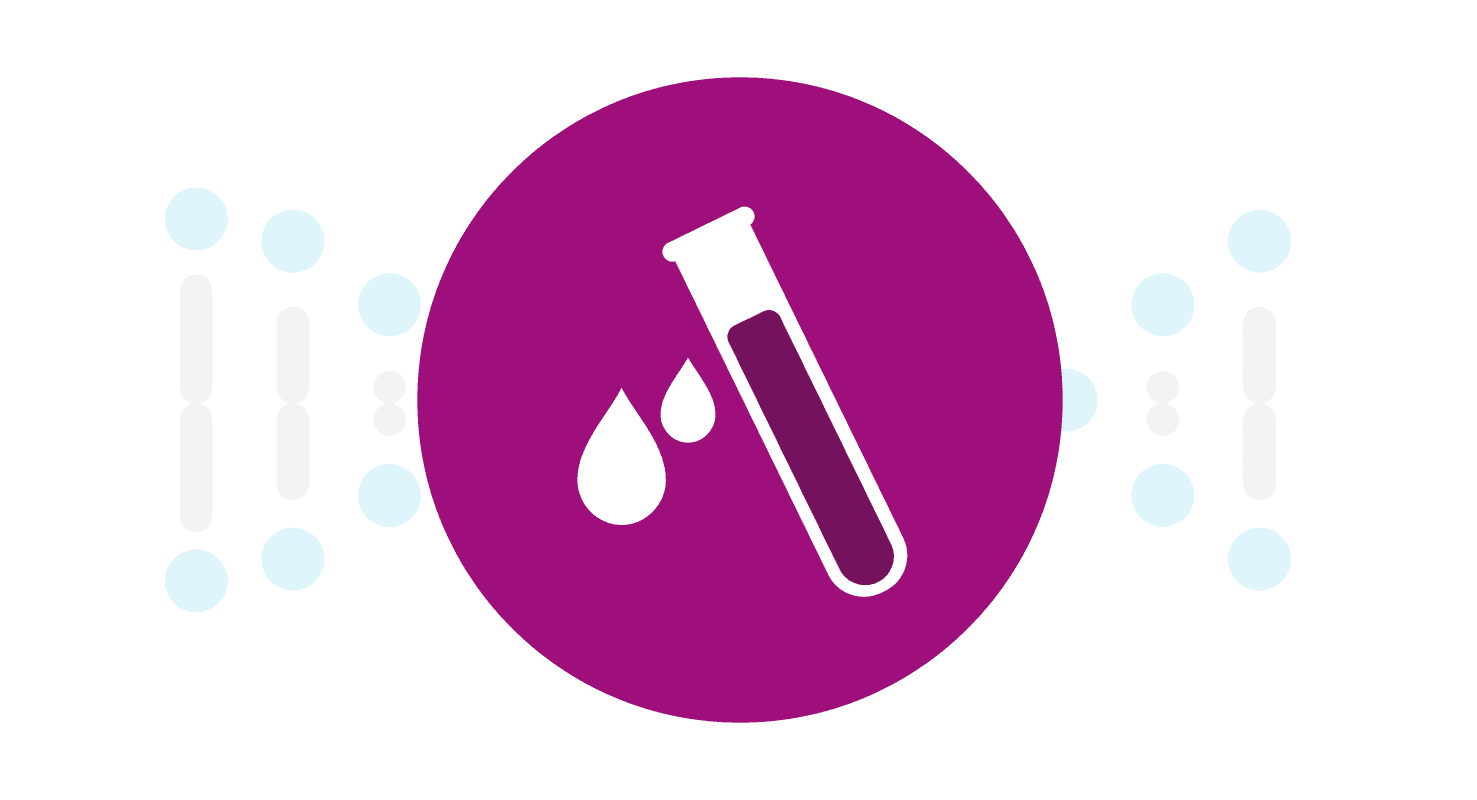Building on our first FDA authorization for a direct-to-consumer genetic health risk test for cancer, 23andMe received clearance this week to expand the number of genetic variants covered in our BRCA1/BRCA2 (Selected Variants) Genetic Health Risk report.*
These additional variants are all known to be associated with higher risk for breast, ovarian, prostate and pancreatic cancer. Adding these variants will increase the number of people who may benefit from the report.
The clearance allows 23andMe to include 41 more variants than the three already included in the BRCA1/BRCA2 (Selected Variants) Genetic Health Risk report. Those three variants are most common in people of Ashkenazi Jewish descent.
“23andMe is the first and only company with FDA clearance to provide information directly to consumers on genetic risk for cancer, without a prescription,” said Kathy Hibbs, 23andMe’s Chief Administrative officer. “This clearance also allows us to expand access to this important information to traditionally underserved populations.”
New Clearance
In total, the 44 genetic variants account for about 30-to-40 percent of cancer-related BRCA variants among people of African American, non-Ashkenazi European, and Hispanic/Latino descent, and also several variants found in people of East Asian and South Asian descent. Having any of these variants increases your cancer risk, regardless of your ancestry.
The new clearance also represents a continued commitment to pioneer this work with the FDA while expanding access to crucial genetic health information for people. 23andMe received the first FDA authorization for a direct-to-consumer genetic test for cancer in 2018. The latest clearance marks 23andMe’s fourth FDA clearance for hereditary cancer risk, and the ninth clearance for direct-to-consumer genetic health risk reports offered by 23andMe.
Beyond this most recent 510(k) clearance, the FDA also granted 23andMe the first-ever Predetermined Change Control Plan (PCCP). This will allow 23andMe to add more validated BRCA1 and BRCA2 variants and associated cancer information to its BRCA1/BRCA2 (Selected Variants) Genetic Health Risk report without additional premarket review if those variants meet the same rigorous analytical and clinical requirements demonstrated in the recent clearance. That decision is under a new regulatory policy adopted by FDA this spring focused on using artificial intelligence and machine learning-enabled software for patient health.
“We are proud to continue pioneering a path for greater access to health information,” said Hibbs. “Becoming the first company to receive PCCP clearance from the FDA under this novel approach will enable us to increase the pace at which we improve and expand our BRCA report.”
Genetic Health Risk Report
New and existing 23andMe Health + Ancestry Service customers tested on our latest genotyping chip will have access to the expanded BRCA1/BRCA2 (Selected Variants) Genetic Health Risk report once it is updated. We plan to update this report with 41 additional variants later this year. Customers who have not already opted in to their BRCA1/BRCA2 (Selected Variants) Genetic Health Risk report must opt in to receive the updated report. The report also includes an education module to ensure customers are fully informed on what they can learn from this report and how to use the results.
The 23andMe BRCA1/BRCA2 (Selected Variants) Genetic Health Risk report utilizes the same informational concepts previously demonstrated in studies submitted to the FDA for its Genetic Health Risk reports. Those studies showed a 90 percent or greater overall user comprehension in a demographically diverse population. 23andMe also carried out robust analytical validation studies: Each variant tested demonstrated greater than 99 percent concordance with Sanger sequencing, and greater than 99 percent reproducibility when tested under different laboratory conditions. While the clearance expands the number of genetic variants covered in 23andMe’s BRCA1/BRCA2 (Selected Variants) Genetic Health Risk report,* it does not test for all BRCA1 and BRCA2 variants known to increase cancer risk. Anyone with a family history of cancer should talk to their doctor to learn whether comprehensive genetic testing is right for them.
Learn more about 23andMe’s Health+Ancestry Service and how your DNA can influence your health here.
*Warnings & Limitations:
The 23andMe PGS test uses qualitative genotyping to detect select clinically relevant variants in the genomic DNA of adults from saliva for the purpose of reporting and interpreting genetic health risks, including the 23andMe PGS Genetic Health Risk Report for BRCA1/BRCA2 (Selected Variants). Your ethnicity may affect the relevance of each report and how your genetic health risk results are interpreted. The test is not intended to diagnose any disease and does not describe a person’s overall risk of developing any type of cancer. It is not intended to tell you anything about your current state of health, or to be used to make medical decisions, including whether or not you should take a medication, how much of a medication you should take, or determine any treatments.
Warnings & Limitations:
The 23andMe PGS Genetic Health Risk Report for BRCA1/BRCA2 (Selected Variants) is indicated for reporting of 44 variants in the BRCA1 and BRCA2 genes. The report describes if a person’s genetic result is associated with an increased risk of developing breast cancer and ovarian cancer and may be associated with an increased risk for prostate cancer, pancreatic cancer, and potentially other cancers. The variants included in this report do not represent the majority of the BRCA1/BRCA2 variants in people of most ethnicities. This report does not include variants in other genes linked to hereditary cancers and the absence of variants included in this report does not rule out the presence of other genetic variants that may impact cancer risk. This report is for over-the-counter use by adults over the age of 18, and provides genetic information to inform discussions with a healthcare professional. The PGS test is not a substitute for visits to a healthcare professional for recommended screenings or appropriate follow-up. Results should be confirmed by an independent genetic test prescribed by your own healthcare provider before taking any medical action.
Forward-Looking Statements
This blog contains forward-looking statements within the meaning of Section 27A of the Securities Act of 1933, as amended, and Section 21E of the Securities Exchange Act of 1934, as amended, including, without limitation, statements regarding the future performance of 23andMe’s businesses in consumer genetics and therapeutics and the growth and potential of its proprietary research platform. All statements, other than statements of historical fact, included or incorporated in this blog, including statements regarding 23andMe’s strategy, financial position, funding for continued operations, cash reserves, projected costs, plans, potential future collaborations, product development and launches, the successful commercialization and market acceptance of new products and objectives of management, are forward-looking statements. The words “believes,” “anticipates,” “estimates,” “plans,” “expects,” “intends,” “may,” “could,” “should,” “potential,” “likely,” “projects,” “predicts,” “continue,” “will,” “schedule,” and “would” or, in each case, their negative or other variations or comparable terminology, are intended to identify forward-looking statements, although not all forward-looking statements contain these identifying words.
These forward-looking statements are predictions based on 23andMe’s current expectations and projections about future events and various assumptions. 23andMe cannot guarantee that it will actually achieve the plans, intentions, or expectations disclosed in its forward-looking statements and you should not place undue reliance on 23andMe’s forward-looking statements. These forward-looking statements involve a number of risks, uncertainties (many of which are beyond the control of 23andMe), or other assumptions that may cause actual results or performance to differ materially from those expressed or implied by these forward-looking statements. The forward-looking statements contained herein are also subject generally to other risks and uncertainties that are described from time to time in the Company’s filings with the Securities and Exchange Commission, including under Item 1A, “Risk Factors” in the Company’s most recent Annual Report on Form 10-K, as filed with the Securities and Exchange Commission, and as revised and updated by our Quarterly Reports on Form 10-Q and Current Reports on Form 8-K. The statements made herein are made as of the date of this blog and, except as may be required by law, 23andMe undertakes no obligation to update them, whether as a result of new information, developments, or otherwise.




